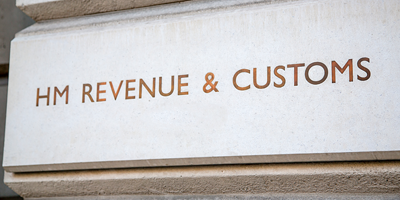
As of the 2023/24 tax years, HMRC have applied a penalty system when a company defaults on its VAT liabilities. Under the changes, penalties are now received for both non-payment of VAT, as well as late submissions of the quarterly VAT return.
The deadline for filing and payment is generally one calendar month plus seven days from the end of each accounting period, but you should also include the time needed to clear payment in HMRC’s bank account. The deadline for the payment of the VAT owed is the same as the deadline date for submission of the return.
VAT penalties replace the old default surcharge system. Penalties relate to VAT accounting periods from 1st January 2023. You will receive your first late payment penalty once your payment is 16 or more days overdue. A second penalty will be given once your payment is 31 days late and your first late payment penalty will also increase. The penalty received will be calculated as a percentage of the VAT amount you owe.
If you are unable to pay in full, you must make it a matter of priority to speak to HMRC to see if you can negotiate additional time to pay what you owe.
If you have fallen behind in your VAT obligations and are being hit with penalties and interest on the amount you owe, you may be able to enter into an arrangement with HMRC to give you the opportunity to repay your late VAT through a series of instalments over a period of up to 12 months.
This is known as a Time to Pay arrangement, and can be a way of preventing additional charges and penalties being added to your outstanding VAT amount.
If you cannot pay your VAT, Begbies Traynor may be able to help you negotiate with HMRC to implement a Time to Pay arrangement. Time to Pay can be invaluable in cases where default is a possibility but the company is essentially viable as a trading entity going forward.
If this is not a possibility, or if you have substantial company debts in additional to VAT, we can discuss other rescue and recovery options such as administration and Company Voluntary Arrangements (CVAs) which would allow you to deal with your outstanding VAT debt while continuing to operate and trade.
One of the reasons why it is so important to pay HMRC on time is that defaulting on any tax liability, including VAT, indicates to them that you may be approaching a position of insolvency. HMRC are known to be unrelenting in the pursuit of debt, and will not hesitate to petition to have your company wound up in the courts and placed into compulsory liquidation.
If you fail to pay the late penalty fines and interest handed down after late payment of VAT, HMRC are likely to see this as proof of your company's insolvency and may begin to start the process of forcibly winding up your company. Receiving penalties for late VAT could be the start of your company's decline, and you should see this as a warning sign that all may not be right with the business's finances.
Begbies Traynor are licensed insolvency practitioners operating from an extensive UK office network. We are able to offer a same-day consultation free of charge to discuss your situation and how to handle VAT penalties and fines.
More Begbies Traynor Articles
Contact Begbies Traynor Group

You're in Safe Hands
Article Archive
Article Categories